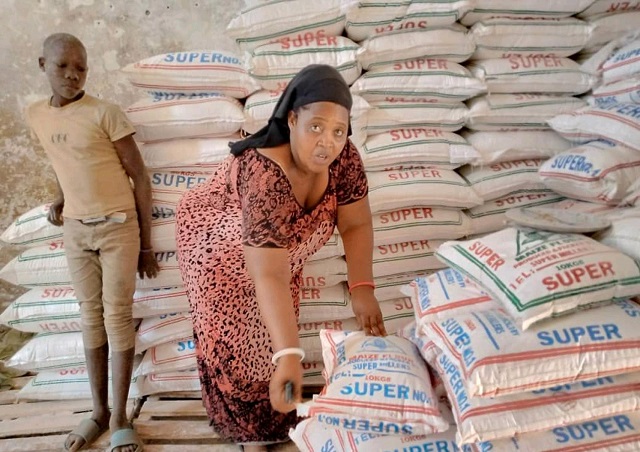
Kampala, Uganda | THE INDEPENDENT | Uganda National Bureau of Standards-UNBS has come under fire from maize dealers for giving them a deadline to secure standard certification without consulting them. The dealers who are involved in milling and trading maize flour say the June 30th deadline issued by UNBS did not consider the various problems they are going through, some of them caused by the government and others by nature.
Last week, the UNBS issued a list of 25 companies and 27 brands that have been certified after meeting the standard requirements for processing and selling maize products for human consumption. It also warned that after June 30, all companies should have acquired certification in order to continue operating. This comes as the government intensifies efforts to fight poor quality maize products for both the local and export markets.
The main issue concerning standards is the presence of high levels of aflatoxins, which led to the suspension of Uganda’s maize exports to Kenya. The development also came amidst a drive around the country aimed at sensitizing the dealers and inspecting their business premises according to the UNBS Acting Executive Director David Livingstone Ebiru.
“It is a young industry, so we have to be careful so that they do not lose their businesses, but grow,” he said. Poor post-harvest handling has been mostly blamed for the presence of high levels of aflatoxin in the maize that mainly results from poor storage. The campaign among the traders and millers is aimed at ensuring that they do not buy infected maize from farmers.
However, the millers and traders are also faulted for causing contamination of the maize through poor storage and transportation, hence the requirement to have UNBS certification. The certificate will be issued after several conditions have been met including the establishment of sanitary facilities at the premises, the health and hygienic standards of workers, construction of the premises and packaging materials among others.
Traders and millers talked to in Kisenyi area in Kampala Central Division said the requirements set by the UNBS are unrealistic for the industry. For example, they say a tiled floor building cannot be used to house a maize mill due to the equipment used, which would damage the tiles and contamination of the products.
The business community also says that they are still trying to recover from the effects of the Covid-19 pandemic, especially the lockdown that saw them make losses when they could not operate and lost their grain. They also claimed that when they were allowed to resume operations, the market remained subdued and is still affected especially by the delayed full reopening of learning institutions.
They also cite the high cost of electricity, which they say is eating into their profits and making it even harder for them to turn around and be able to meet the government requirements. They argue that the four months given to them to get certification are unrealistic.
Others think that the issue of aflatoxins is being blown out of context, saying that the government actions are not based on evidence or past experience. They warn that many, especially the smaller investors are likely to fall out of business if the enforcement of standards is not handled carefully.
*****
URN
 The Independent Uganda: You get the Truth we Pay the Price
The Independent Uganda: You get the Truth we Pay the Price



